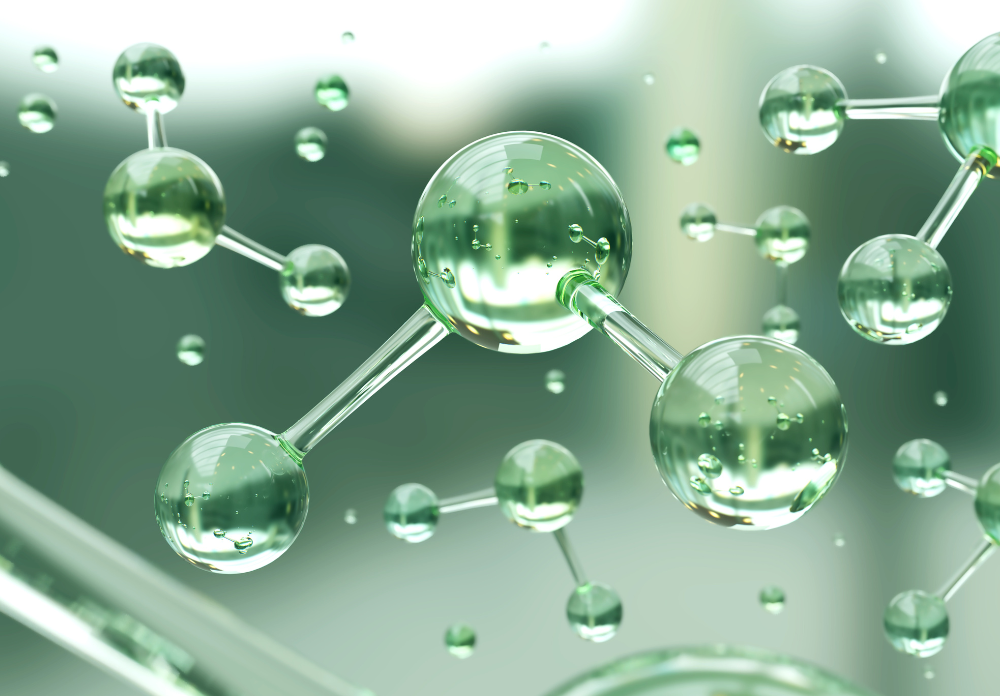NEW REGENERATION
Peptide Therapy
Peptide Therapy
In-clinic service. Pay at visit.
Peptide therapy uses naturally occurring signaling molecules to activate cellular repair and regeneration. Delivered through injections, creams, sprays, or oral forms, peptides target specific receptors to support healing, optimize body functions, and address a variety of conditions.
Share

What is Peptide Therapy?
Peptide therapy is the targeted use of peptides to produce a specific reaction in the body. Peptides have a wide range of therapeutic applications. As the building blocks of proteins, they occur naturally in the human body, regulating a wide range of biological functions and processes, but tend to decrease in abundance and function with age. People with different health and performance goals often consider therapeutic peptides. Some peptides have been shown to assist with weight loss by stimulating the breakdown of visceral fat. They may also be utilized to reduce inflammation. Some peptides stimulate the production of human growth hormone and are utilized in anti-aging therapies or to increase muscle mass.
Peptides are made from amino acids that are linked together. They can be thought of as a small protein. They have many functions in the body including signaling and messaging. Some may act like neurotransmitters, while others may act like hormones. They bind to receptors on the cell surface and tell other cells and molecules what to do. Peptides are very specific which makes them safe, well tolerated and more importantly allow them to control and influence how our bodies react to physical exercise and diet.
Structurally speaking, peptides are related to amino acids and proteins in the following way:
Amino acids are individual molecules
Peptides are (generally) short chains of 2-50 amino acids
Proteins are (generally) long chains of 50+ amino acids
While some may think that peptides are an unproven alternative medicine, they have actually been used as life-saving medicines for over 100 years. Insulin & penicillin are all peptides that have contributed an irreplaceable amount of benefit to modern society. As of January 2015, there were over 60 US FDA-approved peptide medications, 140 peptide drugs being evaluated in clinical trials, and 500 in pre-clinical development.
As we age, production of essential amino acids and peptides decreases. As a result, our bodies begin to show signs of aging and cease to perform at an optimal level.
Most peptide medications are administered subcutaneously but can also come in the form of transdermal creams, nasal sprays, and oral tablets.
Your health is the most valuable thing you have. Traditional doctors tend to only test for a handful of basic health markers, and rely on outdated models of normal vs. optimal levels. And we’re lucky if we are able to spend a few minutes of face-to-face time with your doctor and any symptoms are either ignored or treated with pharmaceuticals with potential side effects. For your health needs, the biostation offers peptide therapy as per suggestions by our highly trained functional medicine providers.
Additional Peptides:
GROWTH HORMONE PEPTIDES (HGH)
- IPAMORELIN/CJC 1295
- MK-677
- TESAMORELIN
- SERMORELIN
HARI & SJIN PEPTIDES
- GHK-CH
- ZINC THYMULIN
- MELANOTAN II
- PTD-DMB
WEIGHT LOSS PEPTIDES
- 5-AMINO 1MQ
- IPAMORELIN
- CJC 1295
- TESAMORELIN
- AMLEXANOX/TTA
IMMUNE SYSTEM SUPPORT
- THYMOSIN ALPHA1
- THYMOSIN BETA 4
- LL-37
REPAIR PEPTIDES
- BPC 157
- THYMOSIN BETA 4/ TB500
- PENTOSAN POLYSULFATE
- IGF-1
- VIP
- KPV
NEUROGENIC/NEUROACTIVE PEPTIDES
- CEREBROLYSIN
- EPITHALON
- SEMAX
- RG3
- FGL
- DIHEXA
MUSCLE BUILDING PEPTIDES
- CJC 1295
- IGF-1
- MGF
- SARMS LGD 4033
LIBIDO AND SEXUAL FUNCTION PEPTIDES
- MELANOTAN II
- BREMELANOTIDE(PT 141)
ENDOCRINE REGULATION
- EPITHALON
- DSIP
- KISSPEPTIN

